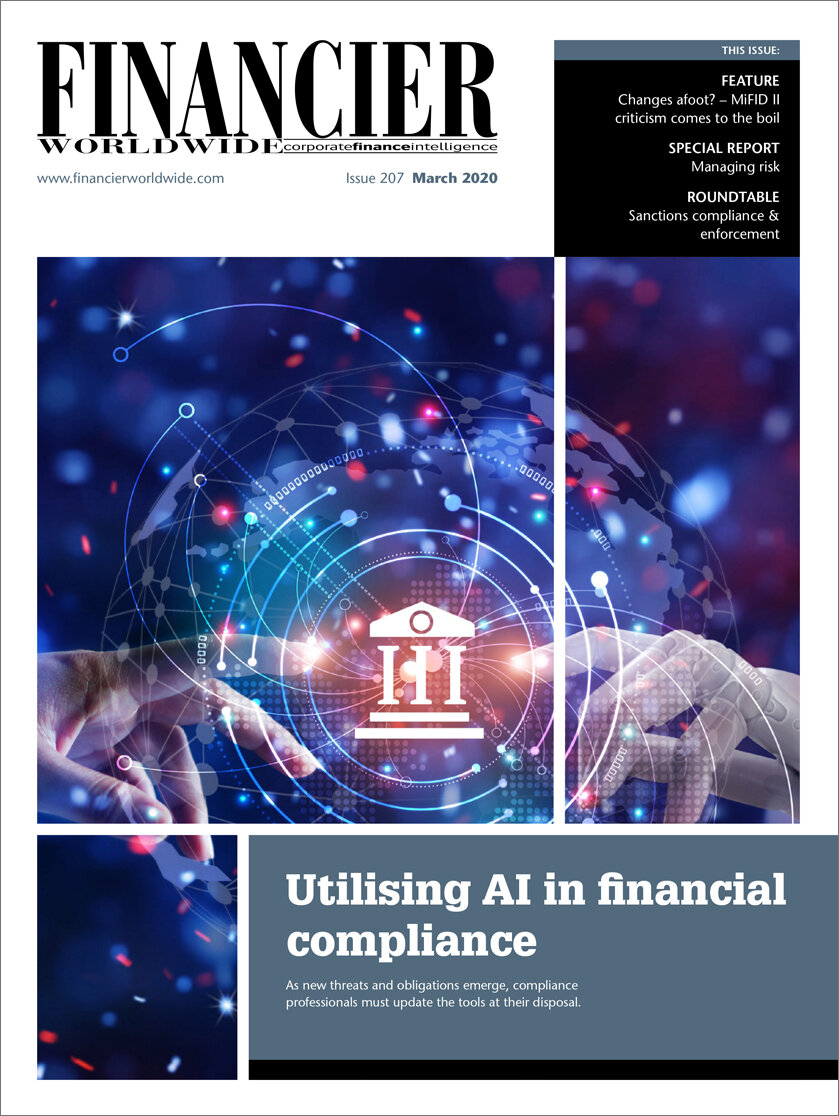Borden Dairy files for Chapter 11 bankruptcy
March 2020 | DEALFRONT | BANKRUPTCY & CORPORATE RESTRUCTURING
Financier Worldwide Magazine
Borden Dairy, one of the largest and oldest dairy companies in the US, has filed for Chapter 11 bankruptcy protection in the US Bankruptcy Court for the District of Delaware.
The company, which was founded in 1856, became the second major US dairy producer to file for bankruptcy following the November filing of Dean Foods, the US’s biggest milk producer. According to Euromonitor, the two companies controlled around 13.5 percent of all milk sales in the US last year.
According to a statement announcing its filing, Borden expects to continue normal operations while it pursues its restructuring after proactively filing expected motions as part of the court-supervised process, which will allow it to continue its day-to-day operations.
Borden cited a dropping demand for cow’s milk, rising costs for raw milk and its own debt and pension obligations as key drivers behind its filing. The company’s largest unsecured claim is from the Central States, Southeast and Southwest Areas Pension Fund for over $33m.
Borden has around 3300 employees, 22 percent of which are covered by a collective bargaining agreement. The company operates 13 milk processing plants that produce approximately 500 million gallons of milk annually.
The dairy industry, from small family-owned businesses to the sector’s largest players, have experienced significant financial uncertainty in recent years. The price of raw milk jumped 27 percent between January 2019 and January 2020 and is expected to continue rising. Furthermore, the increasing popularity of dairy-free equivalents including almond, rice and soy milk has also had an impact. In its filing, Borden noted that 2700 US family dairy farms went out of business in 2019, and 94,000 farms have ceased milk production since 1992. Furthermore, there has been a 6 percent drop in overall US milk consumption since 2015.
Borden recorded revenue of $1.2bn in 2019, which outpaced the dairy industry, however a large part of the company’s increased sales stemmed from the other products it produces, including sour cream, cottage cheese, teas and orange juice. In its bankruptcy filing, Borden listed estimated debts and liabilities, both in a range from $100m to $500m and from January to 7 December 2019, the company had a total net income loss of $42.4m.
“Borden is EBITDA-positive and growing, but we must achieve a more viable capital structure,” said Tony Sarsam, chief executive of Borden. “This reorganisation will strengthen our position for future prosperity. Over the past 163 years, we have earned the distinction of being one of the most well-recognised and reputable national brands. We remain committed to ‘The Borden Difference,’ which is our promise to be the most service-oriented dairy Company that puts people first. We will continue serving our employees and other stakeholders and operating business as usual throughout this process.
“Despite our numerous achievements during the past 18 months, the Company continues to be impacted by the rising cost of raw milk and market challenges facing the dairy industry,” he added. “These challenges have contributed to making our current level of debt unsustainable. For the last few months, we have engaged in discussions with our lenders to evaluate a range of potential strategic plans for the Company. Ultimately, we determined that the best way to protect the Company, for the benefit of all stakeholders, is to reorganise through this court-supervised process.”
Borden’s filing has been criticised by the company’s lenders, however. Investment firm Kohlberg Kravis Roberts & Co, which lent the company $175m, called the filing “a surprise and value-destructive bankruptcy”. The firm alleged that Borden had “no economic justification” for the bankruptcy and accused the company of having “an almost fully-baked out-of-court restructuring solution” agreed but “recklessly” filed for an “economically irrational” bankruptcy instead. KKR also suggested that Borden’s decision to file for Chapter 11 protection may have been made to protect its private equity backer Acon Investments.
In 1995, Borden was acquired for $2bn by KKR, which proceeded to sell off pieces of the company to various buyers. Acon purchased the company in 2017.
© Financier Worldwide
BY
Richard Summerfield

